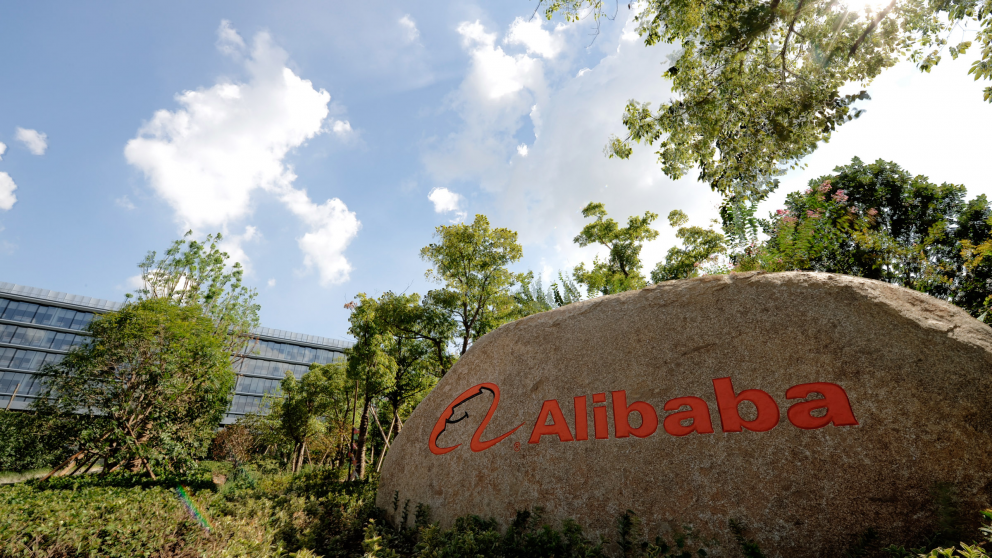
On July 2, 2021, the Financial Times published a story with the headline “Alibaba’s Jack Ma and Joe Tsai pledge shares to global banks.” We take issue with the innuendos implied by the misleading characterizations of ordinary financial planning activities of our Company’s founders.
Prior to publication of the article, we provided responses to the Financial Times to clarify their questions. However, the Financial Times chose to ignore the fact that Jack Ma has no outstanding loans collateralized by Alibaba shares.
In the interest of providing more information and transparency to Alibaba’s shareholders, below is our response to the Financial Times that was delivered prior to the publication of their story:
**************************************************************************
Dear Ryan,
Per your email dated 23 June 2021, you have submitted numerous questions about Jack Ma and Joe Tsai’s personal financial affairs. While it is not appropriate for us to comment on Jack and Joe’s private financial matters, we wish to provide information to the extent the inquiries relate to Alibaba Group, as well as Jack and Joe’s relationship with Alibaba, that could be of interest to the Company’s shareholders.
At the outset, we would like to remind you that Jack Ma handed over his CEO role in Alibaba in September 2018, and the chairmanship in September 2019, to Daniel Zhang. Further, Jack stepped down from the Company’s board in September 2020 and therefore he no longer has any executive or board responsibility at Alibaba.
Joe Tsai remains as executive vice chairman and board member of Alibaba.
Your questions broadly raise the following issues:
1. Whether loans to Jack and Joe using Alibaba stock as collateral were appropriately disclosed to Alibaba shareholders
2. Whether the loans pose a risk of margin calls resulting in a forced sale of Alibaba stock that might cause disruption to the stock price
3. Whether Jack and Joe would like to comment on their sale of Alibaba stock since Alibaba went public in 2014
4. What is the tax treatment of stock sales by Jack and/or Cathy
We would like to address these issues.
1. Whether loans to Jack and Joe using Alibaba stock as collateral were appropriately disclosed to Alibaba shareholders
The fact that Jack and Joe have borrowed from financial institutions using their Alibaba stock as collateral has been widely reported. For example, please see this Bloomberg article in September 2015. At the time of the 2015 Bloomberg report, an Alibaba spokesperson made the following statement:
“Share financing is very common for founders and senior executives who hold such a strong belief in the future growth potential of their companies. This is prudent financial planning and management.”
The rationale for the loans is ordinary financial planning to provide liquidity and diversification without having to sell shares in Alibaba, because the executives have strong belief in the potential of Alibaba. In fact, in the five years from the September 2015 Bloomberg report through September 2020, the stock price of Alibaba increased more than four-fold, representing a compounded annual return of 33%.
In addition, your statement that “most US companies bar executives from pledging their shares for loans” is incorrect. Share pledges by senior executives of US companies, including Elon Musk of Tesla and Larry Ellison of Oracle, are well-documented in the news, and based on even a cursory survey of public filings of other US companies, including Amazon, Bank of America, Bristol Myers Squibb, General Electric, Netflix and Walmart, it is clear that many companies do not prohibit share pledges by executives.
2. Whether the loans pose a risk of margin calls resulting in a forced sale of Alibaba stock that might cause disruption to the stock price
As of Alibaba’s latest annual report filed in July 2020, Jack beneficially owned 4.8%, and Joe beneficially owned 1.6%, of the outstanding capital of Alibaba Group, respectively. While Jack and Joe’s shareholding in Alibaba continues to constitute a majority of their wealth, such shareholding is relatively small compared to holdings by institutional investors.
Currently, Jack and his affiliates do not have any loans outstanding that are collateralized by Alibaba shares. Therefore, there is no risk of any margin calls with respect to Jack or his affiliates.
In the case of Joe and his affiliates, the amount of loans incurred and the number of shares pledged are private personal financial information that we are not at liberty to disclose. We are able to say, however, that the size of the loans and share pledges are easily manageable in the context of Alibaba’s market capitalization and trading volume. Over the past three months, Alibaba stock has a combined average daily trading volume of approximately US$4 billion on the New York Stock Exchange and Hong Kong Stock Exchange. In addition, the loans have prudent loan-to-value ratios to provide substantial cushion against triggering a margin call.
3. Whether Jack and Joe would like to comment on their sale of Alibaba stock since Alibaba went public in 2014
Jack and Joe are founders of Alibaba who started the Company in 1999. They have owned Alibaba stock for 22 years and continue to have significant holdings in Alibaba, which make up the majority of their wealth.
Since the Alibaba IPO in 2014, the amount of stock disposed of by our senior executives is a matter of public information. It is our company policy that when executive officers sell stock, they do so pursuant to a passive plan that comply with SEC Rule 10b5-1. These plans require the executive to enter into broker agreements that have pre-determined volume and price to minimize the risk of material non-public information being used to trade the stock.
Stock sales by founders and executives in an orderly manner under strict compliance with securities regulations are the usual way for the individuals to achieve liquidity and diversification as part of their normal personal financial management plans.
4. What is the tax treatment of stock sales by Jack and/or Cathy
Cathy is a founder of Alibaba and was employed by Alibaba from 1999 to 2005. She has owned Alibaba founder stock since the founding of the Company, and had been granted employee share-based compensation, in each case, independent of Jack’s shareholding in the Company. Per an agreement between Jack and Cathy, Jack has the right to exercise voting power over the Alibaba shares owned by Cathy and entities controlled by her, and Cathy’s shareholding is deemed to be beneficially owned by Jack under the relevant SEC reporting requirements.
Jack and Cathy have established separate trusts to hold their respective Alibaba stock holdings for estate planning purposes.
Jack is a PRC citizen and has fully complied with all relevant Chinese tax laws on the sale of Alibaba stock – that is, for Chinese tax purposes the capital gains from stock sales by the trust controlled by Jack are attributed to him and he has paid all Chinese capital gains taxes on such sales.
Although Cathy serves as a director of certain holding companies under Jack’s trust, this does not change the fact that Jack is subject to Chinese capital gains tax on the sale of stocks held by his trust. Similarly, Cathy has complied with all relevant tax law and regulations on the Alibaba shares sold by entities controlled by her.
*****************************************************************************
Please feel free to attribute our answers above to a spokesperson for Alibaba Group. We request that if you publish any article containing the private financial information of either Jack, Cathy or Joe, that you do so in a way that protects their privacy, as well as put facts into proper context so as to avoid your readers drawing misleading conclusions.
We reserve our right to publish the full text of this communication in a public medium of our choice.
To receive the latest news directly in your inbox, sign up for the weekly Alizila newsletter




